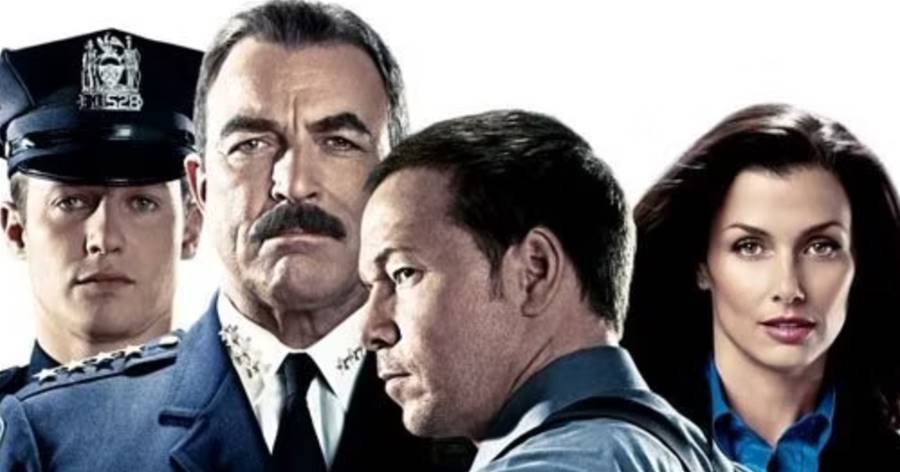

The latest in a long, long line of broadcast cop shows, Blue Bloods has earned its fair share of fans by combining tried and true detective stories with a hearty dose of family drama. Does the first season finale "The Blue Templar" deliver the goods?
Those who've kept up with Blue Bloods throughout its first season will be familiar with the central plot running through both the series and the finale: the underground crime gang called the Blue Templar made up entirely of NYPD officers. The Reagan family must band together to bring down the shadow fraternity, clean out the rank and file, as well as avenge the death of lost family member Joe.
At the conclusion of Blue Bloods' last episode, rookie cop Jaime Reagan (Will Estes) told his detective brother Danny (Donny Wahlberg) that he'd been working with the FBI to root out the Templars and find justice for Joe. Danny brings it to the brass, who just happens to be their father Police Commissioner Magnum Frank Reagan (Tom Selleck).
Along with district attorney sister Erin (Bridget Moynahan) and retired grandfather Lou (Len Cariou) the Reagans establish a surveillance ring to finally bust the Templars, while avoiding the official side of the NYPD for fear of being compromised. Meanwhile Jaime must protect a sexy kidnapping target (guest star Natalie Knepp).
When making a police procedural, there's a fine line to walk between focusing on the cases (Law & Order) and the characters (The Shield). Blue Bloods falls squarely into the latter category, but has evened things up considerably with the season-long Templar arc. The story, and the better part of the show's central conflict, concludes with the finale.
The question that viewers (and to some extent, CBS) must answer is not whether or not Blue Bloods is good - it is - but whether it's good enough. The genre is filled to bursting across almost every network; does Blue Bloods rise above the rank to serve with distinction?
